KubeCon Shanghai 2023

KubeCon Shanghai is over, and I am still mind-blown with the entire experience. It is my first time in China, so I am still trying to figure out how things work over here, but overall, I can say that it has been a very positive and rewarding experience.
The conference had 1800+ people attending in Shanghai, and companies like Huawei, Arm, Intel, and Alibaba Cloud were sponsoring the event. The schedule was pretty packed, and there were a lot of mainteiners' sessions, as expected.
I was on a mission to see who was using Dapr and Knative, and I was mindblown by the level of adoption these projects have on this side of the world.
I've tried to summarize my personal experience in a couple of sections. Scroll down if you want to look at the slides from the presentation we did with Alexa Griffith from Bloomberg about Platforms for Developers and Data Scientists.
Trending topics
I would say that the usual suspects were all present. The keynotes covered everything from AI and ML to Platforms and cost-efficiency optimizations for our workloads and clusters.
Most Keynotes were about companies like Huawei, the Agricultural Bank of China, and Intel, describing their approaches to platform building and the topics they care more about, such as security, scalability, costs, and performance.
It was interesting to see HuggingFace, a US-based company (which raised more than 400 M U$D), building Large Language Models for open code assistance (https://huggingface.co/blog/starcoder).
Some highlights for me were the following:
- Loads of Kubevela being mentioned; no surprise here
- Dapr + Knative is a very popular combination for building FaaS platforms on top of Kubernetes
- KMesh (data plane mesh with eBPF), Koordinator (Kubernetes Scheduler for scaling AI/ML workloads, cluster with up to 7500 nodes), Volcano (from Alibaba Cloud, for scaling compute-intensive workloads) and KubeDL ( for running deep learning models on Kubernetes) were all new projects for me
Collaborations moving forward
China is currently in the top two countries to contribute to CNCF projects, but there is still a gap, a bridge that is missing between communities to improve collaborations. From what I've seen and discussed with local engineers, there is a strong willingness to contribute, and one of my highlights of the trip was the openfunction.dev project and the opportunities generated by promoting collaborations between upstream and downstream projects. OpenFunction, wasn't new to me, but until now, I haven't had any community contact with maintainers or engaged in any conversations.
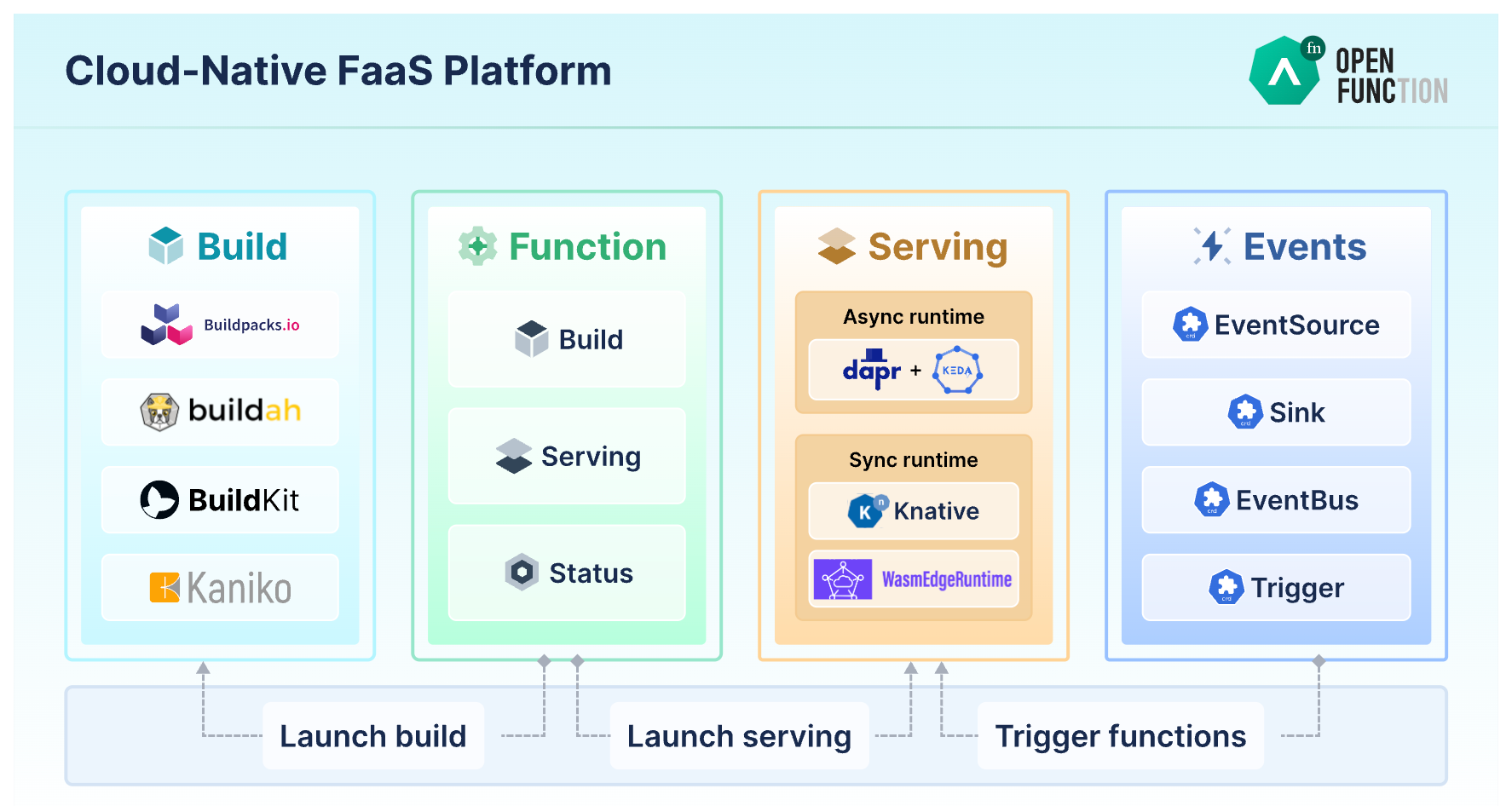
Projects like OpenFunction aggregate open-source tools to provide a specific developer experience. In this case, the main goal is to simplify function developers' lives by providing tools to Launch, Serve, and Trigger functions. As you can see from their architecture diagram, tools like Knative, Dapr, and KEDA are configured to work together to host and run functions (both sync and async).
Having these runtimes available and combining this with the Knative Functions developer experience can provide an end-to-end workflow to cover a wide range of scenarios and save companies building custom FaaS platforms tons of time. Check Luke's Knative Functions: From source to service YouTube video here:
Slides & Pics
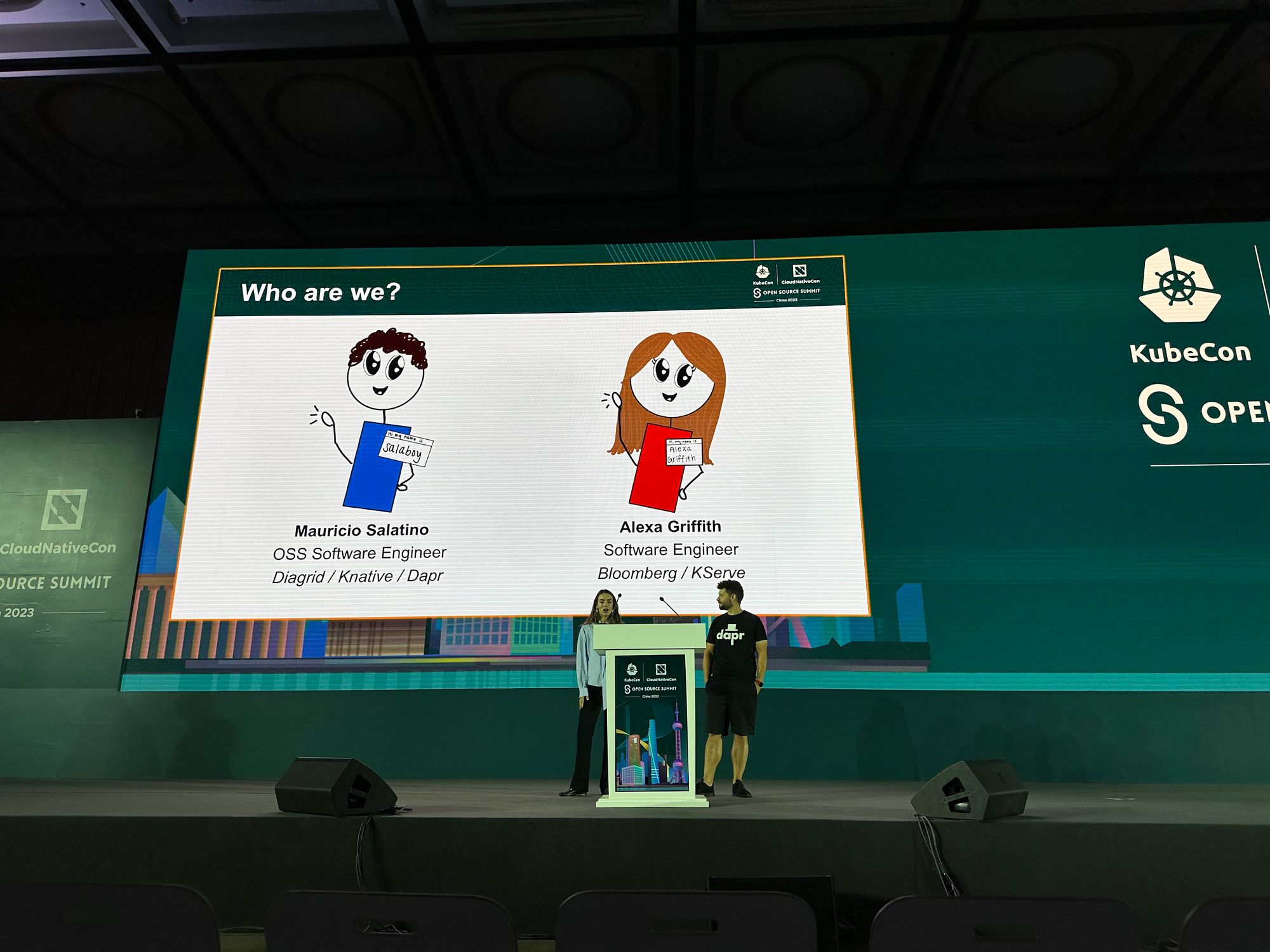
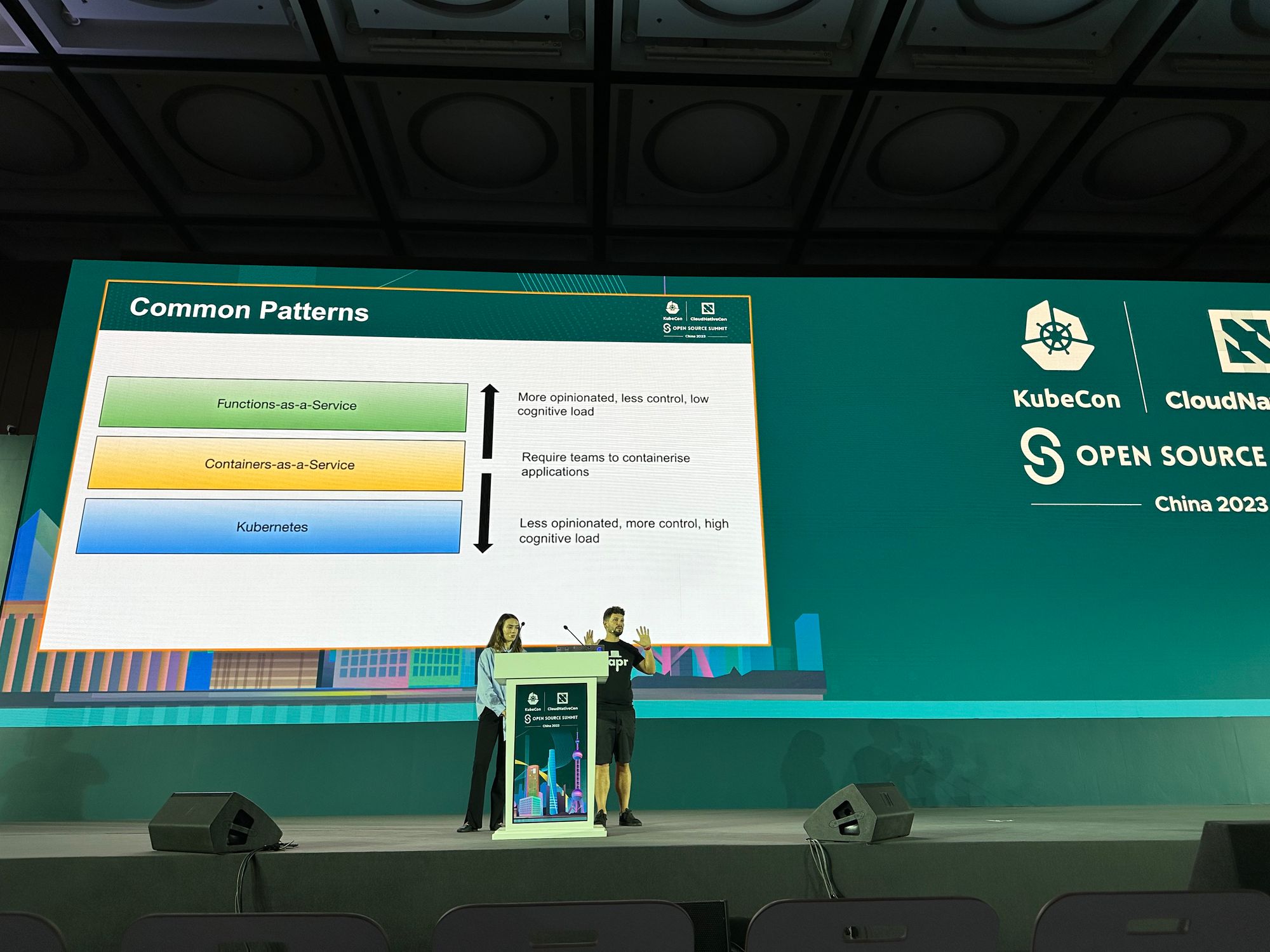
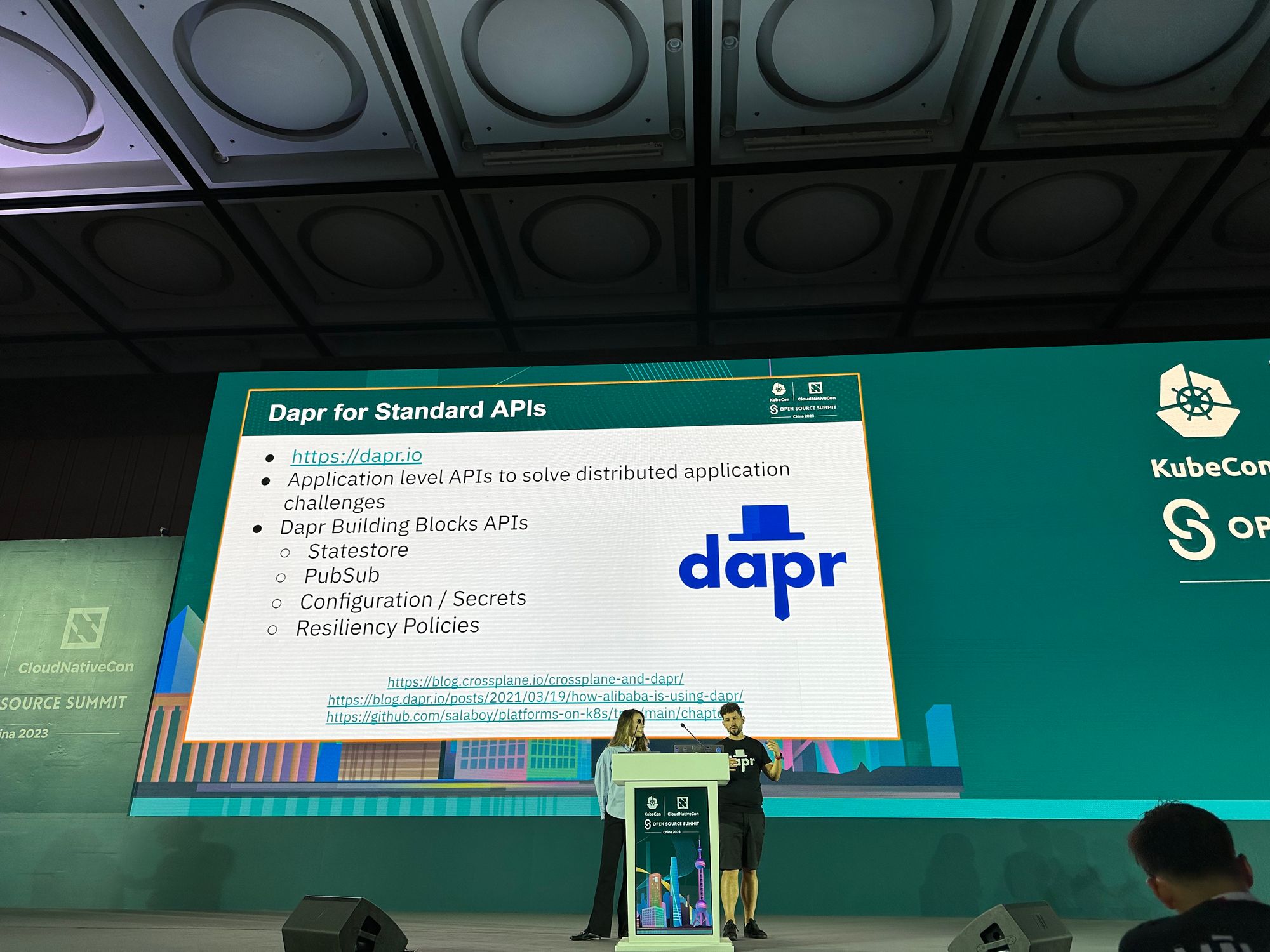
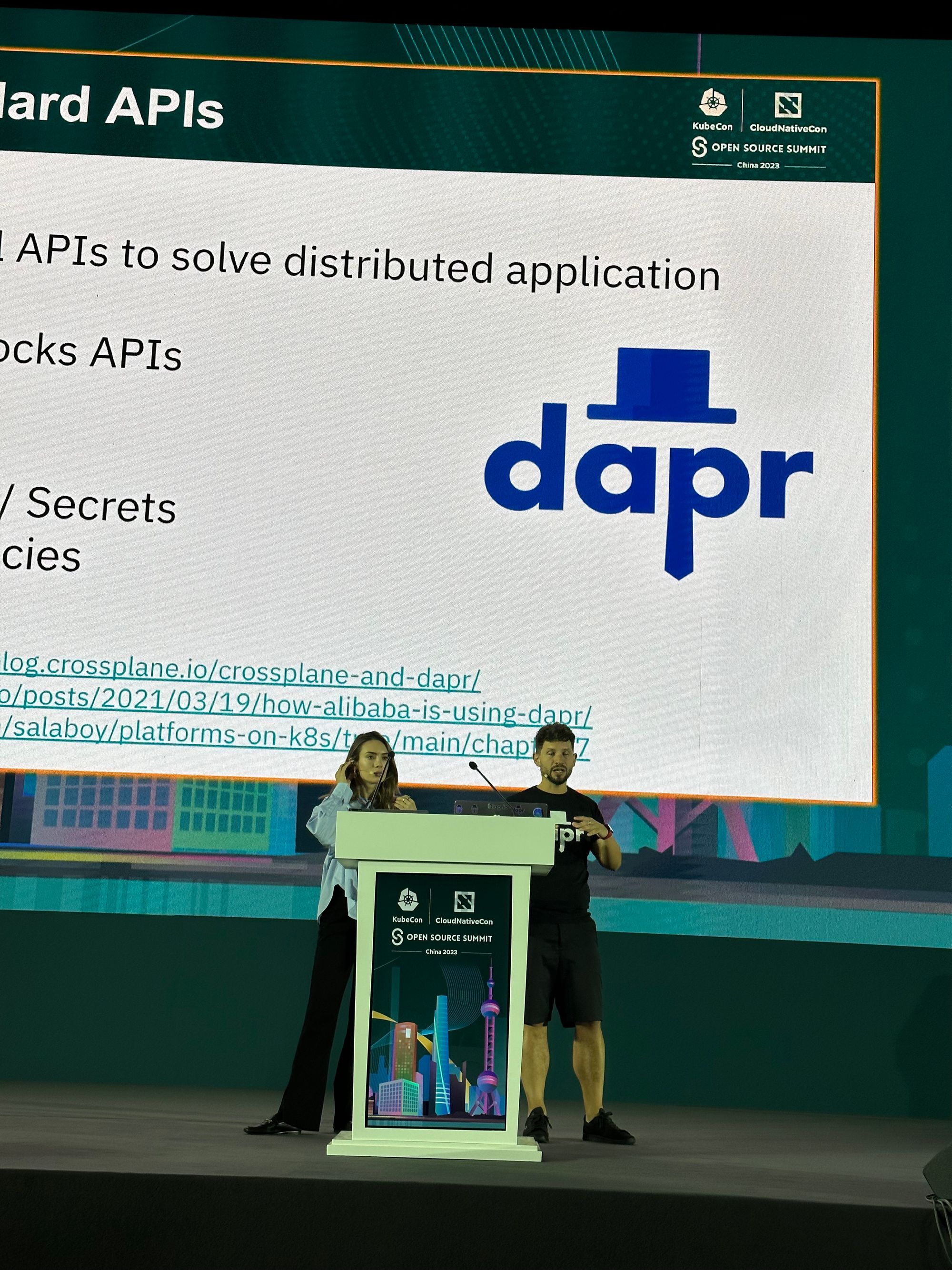
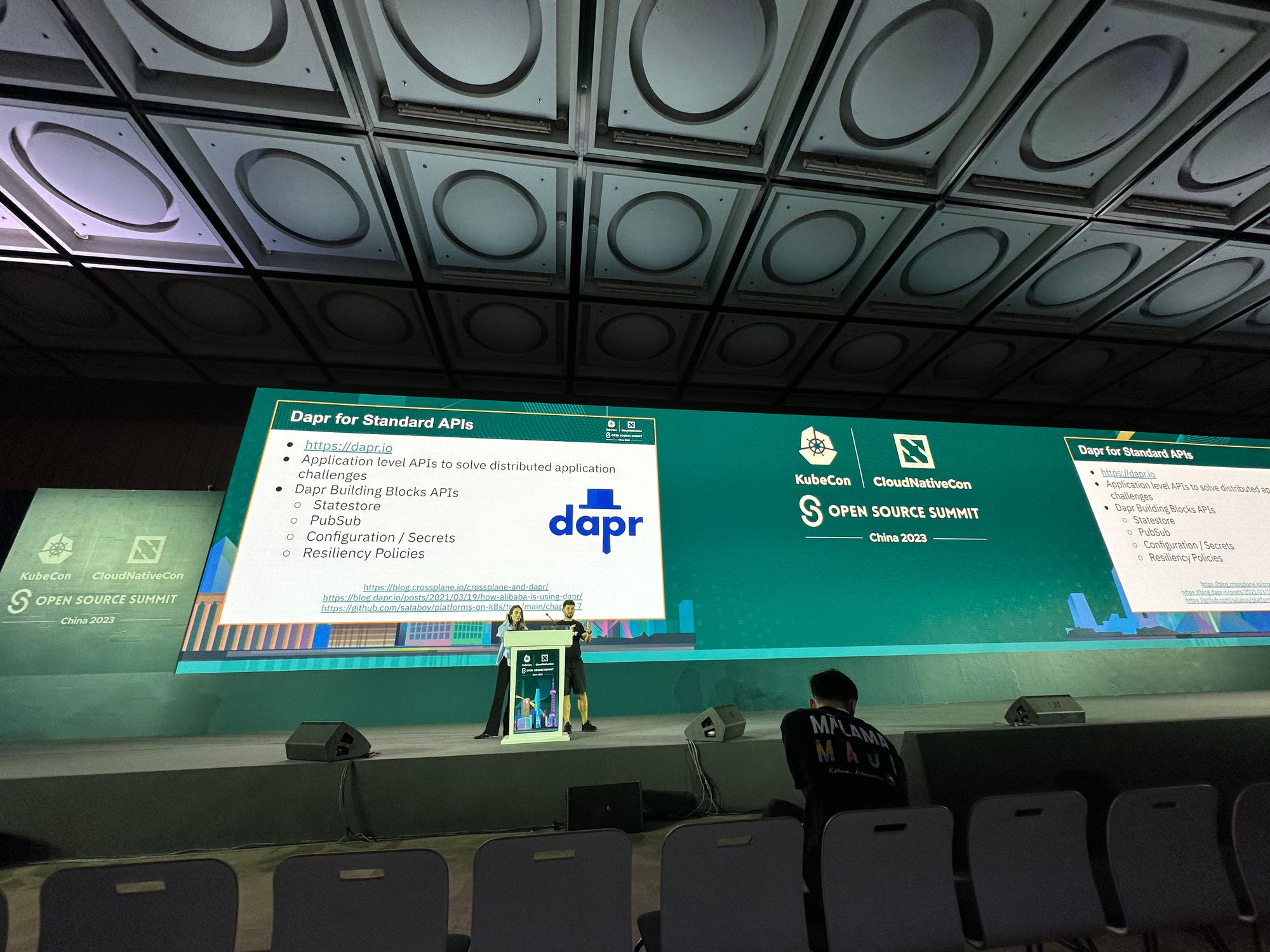
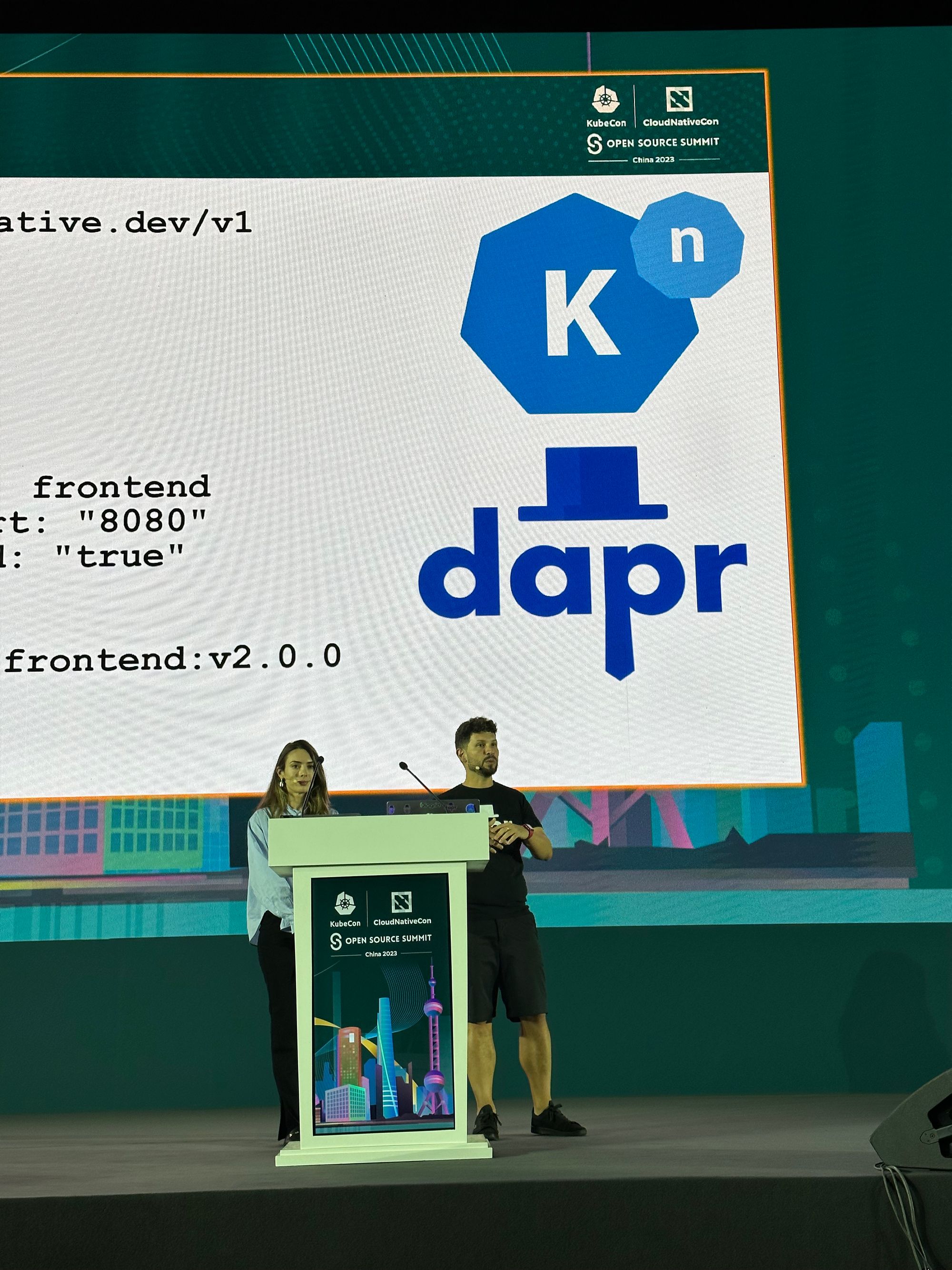
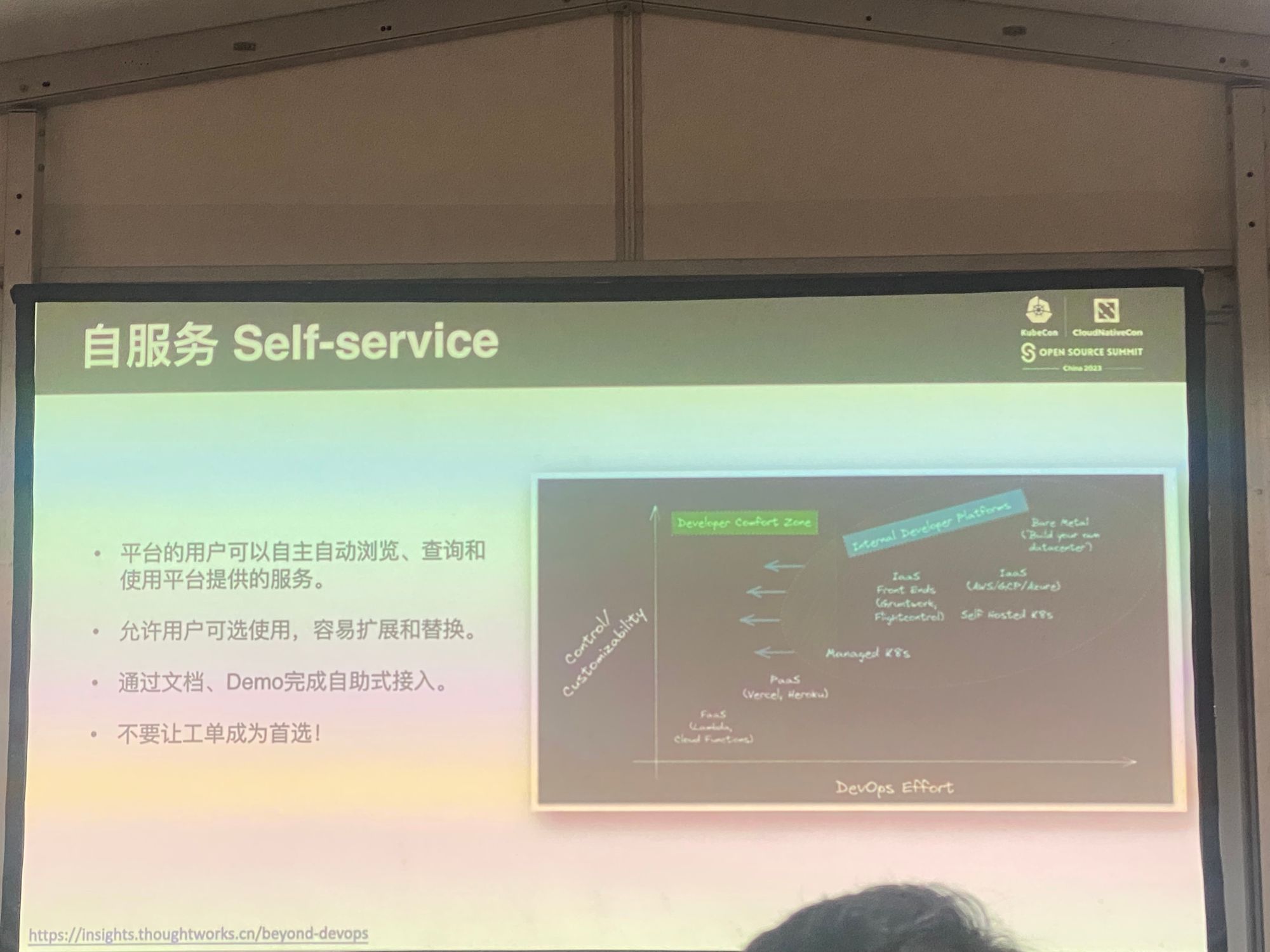
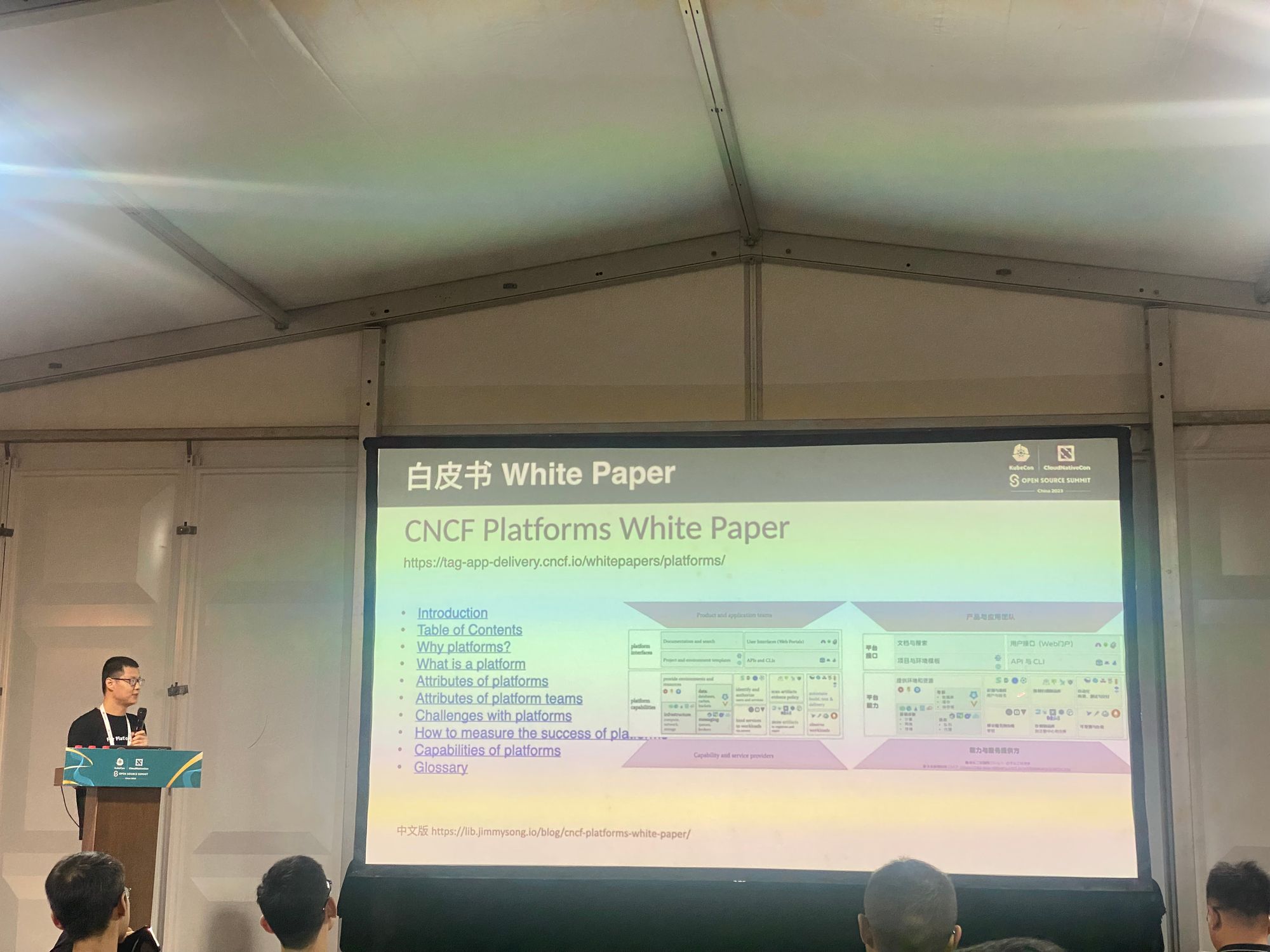
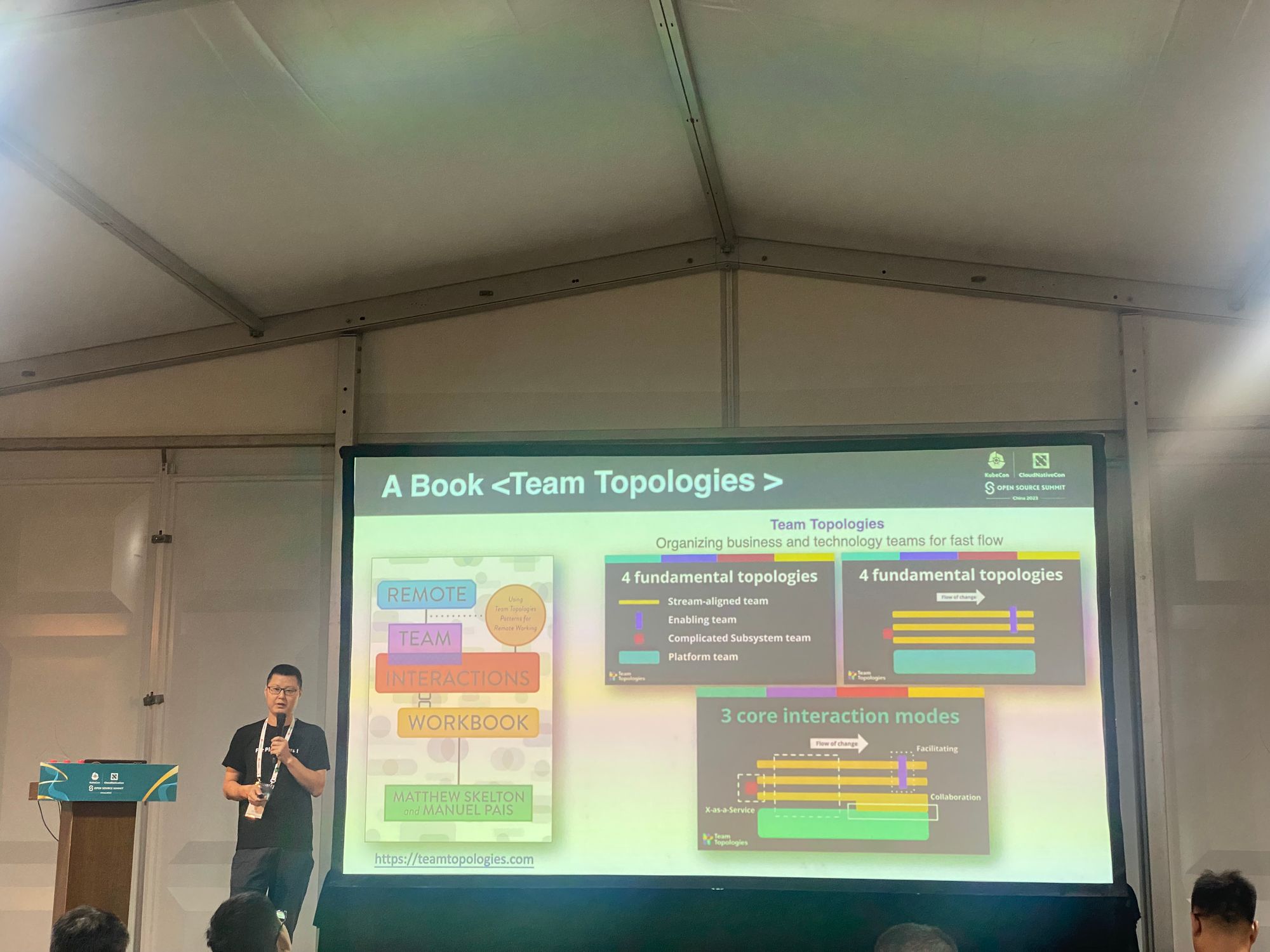
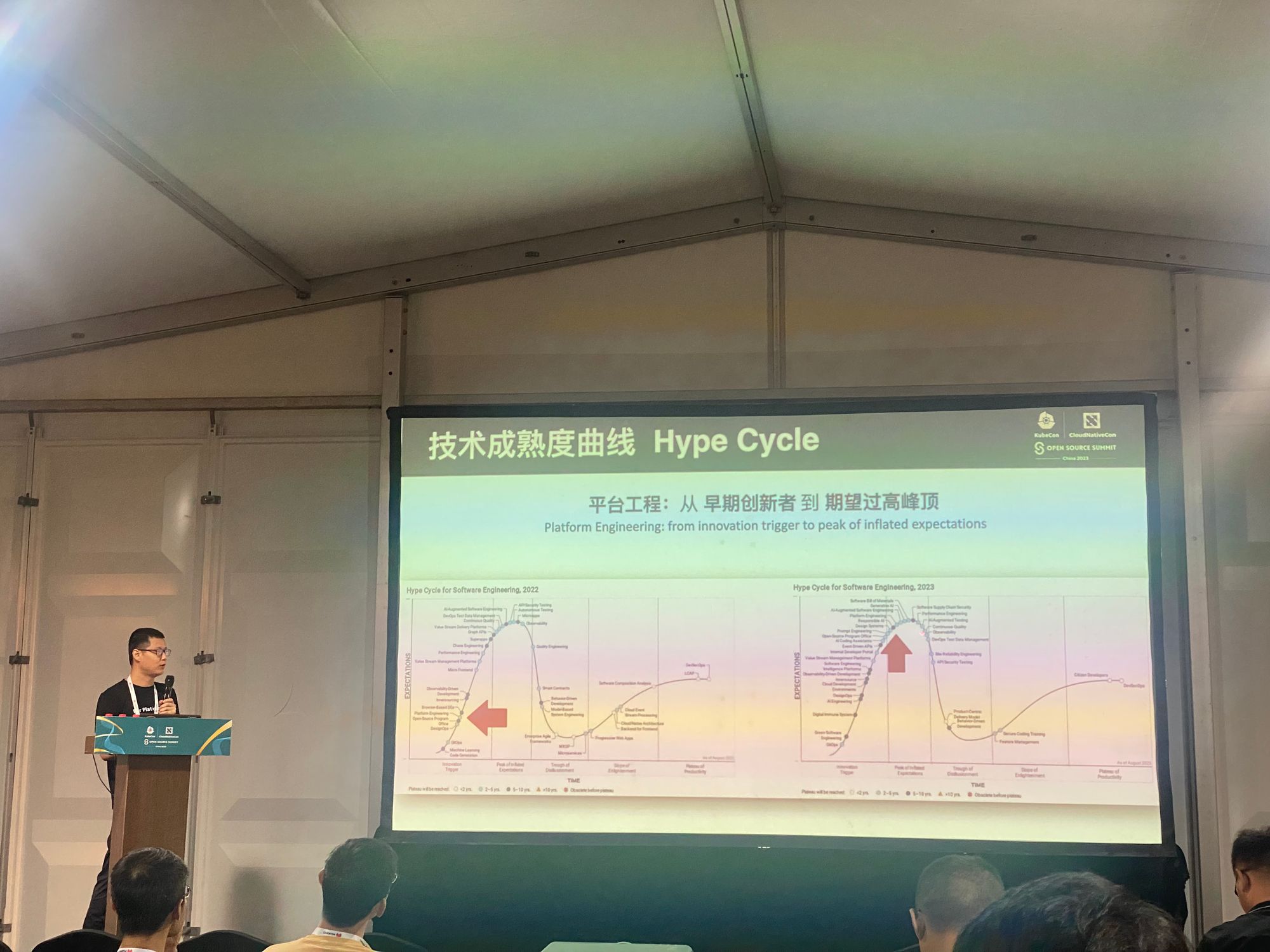
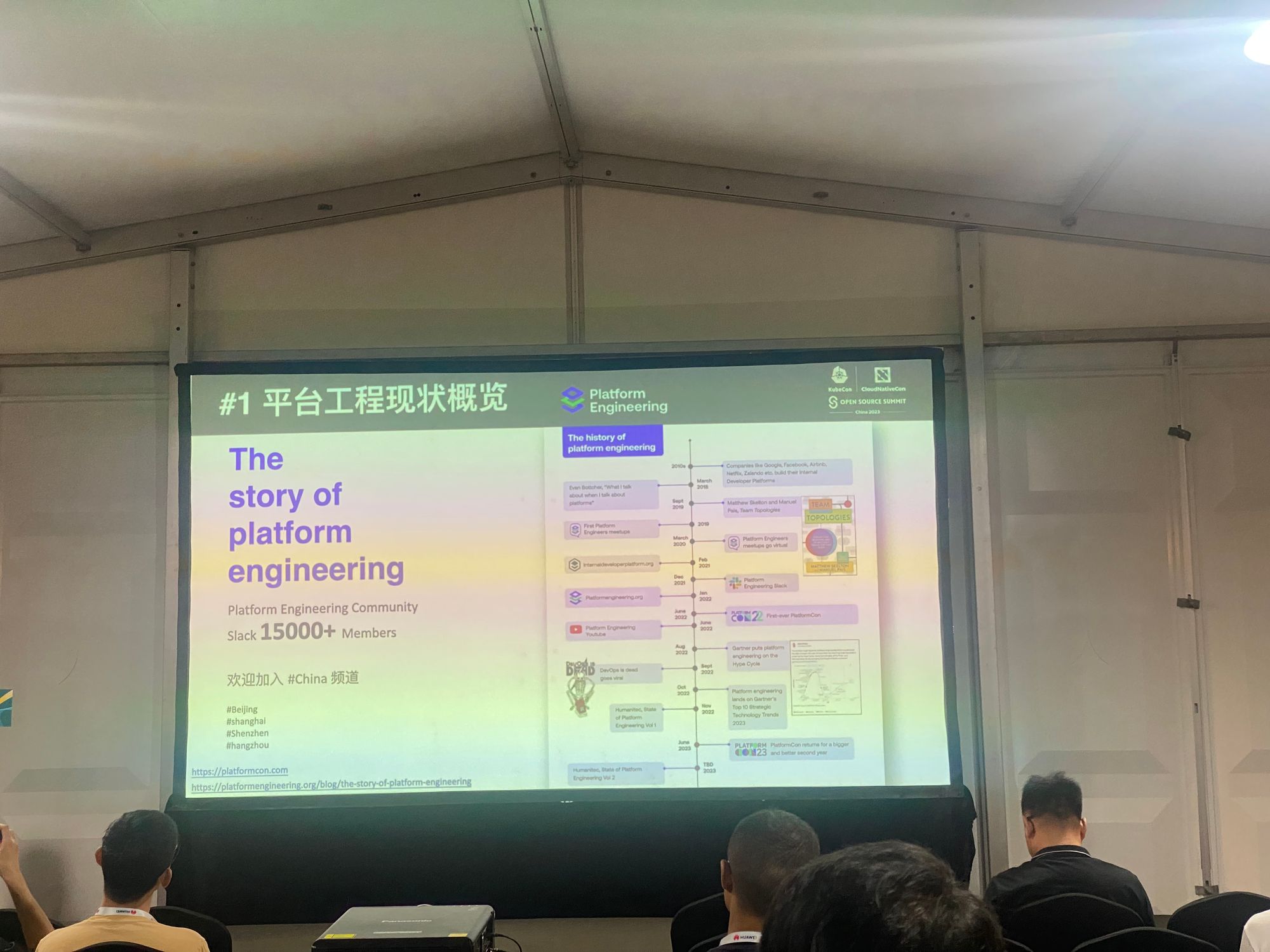
My friend, 朋友, @salaboy is here✨#KubeCon + #CloudNativeCon + #OSSummit China pic.twitter.com/tIQ8RlUzUh
— Shinya Yanagihara (@yanashin18618) September 28, 2023
yay! https://t.co/GquVIi3GgA pic.twitter.com/40Den7Nu3H
— alexa griffith (@lexal0u) September 28, 2023
